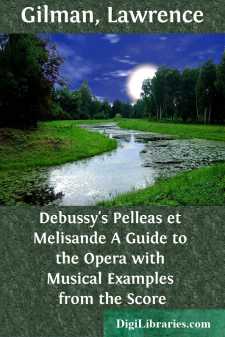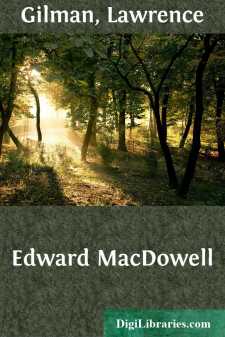Categories
- Antiques & Collectibles 13
- Architecture 36
- Art 48
- Bibles 22
- Biography & Autobiography 813
- Body, Mind & Spirit 142
- Business & Economics 28
- Children's Books 13
- Children's Fiction 10
- Computers 4
- Cooking 94
- Crafts & Hobbies 4
- Drama 346
- Education 46
- Family & Relationships 57
- Fiction 11828
- Games 19
- Gardening 17
- Health & Fitness 34
- History 1377
- House & Home 1
- Humor 147
- Juvenile Fiction 1873
- Juvenile Nonfiction 202
- Language Arts & Disciplines 88
- Law 16
- Literary Collections 686
- Literary Criticism 179
- Mathematics 13
- Medical 41
- Music 40
- Nature 179
- Non-Classifiable 1768
- Performing Arts 7
- Periodicals 1453
- Philosophy 64
- Photography 2
- Poetry 896
- Political Science 203
- Psychology 42
- Reference 154
- Religion 513
- Science 126
- Self-Help 84
- Social Science 81
- Sports & Recreation 34
- Study Aids 3
- Technology & Engineering 59
- Transportation 23
- Travel 463
- True Crime 29
Lawrence Gilman
Lawrence Gilman (1878–1939) was an American author, music critic, and program annotator. He was known for his insightful writings on music and composers, contributing to publications like the "New York Herald Tribune". Gilman authored several books, including "Phases of Modern Music" and "Stories of Symphonic Music," which explored musical interpretation and its impact on listeners. Additionally, he worked as a program annotator for the New York Philharmonic and the Philadelphia Orchestra, helping audiences appreciate classical music more deeply.
Author's Books:
Sort by:
by:
Lawrence Gilman
I With the production at Paris in the spring of 1902 of Claude Debussy's Pelléas et Mélisande, based on the play of Maeterlinck, the history of music turned a new and surprising page. "It is necessary," declared an acute French critic, M. Jean Marnold, writing shortly after the event, "to go back perhaps to Tristan to find in the opera house an event so important in certain respects...
more...
by:
Lawrence Gilman
CHAPTER I RECORDS AND EVENTS Edward MacDowell, the first Celtic voice that has spoken commandingly out of musical art, achieved that priority through natural if not inevitable processes. Both his grandfather and grandmother on his father's side were born in Ireland, of Irish-Scotch parents. To his paternal great-grandfather, Alexander MacDowell, the composer traced the Scottish element in his...
more...



